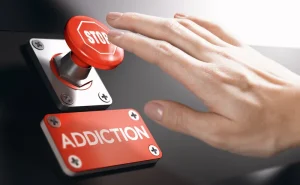
Our content does not constitute a medical or psychological consultation. See a certified medical or mental health professional for diagnosis. Remember, practice makes perfect, so be persistent with yourself as you learn to use these techniques effectively. You can overcome cravings and stay on the path with time and effort. Gratitude is a powerful tool for drug addiction recovery that involves acknowledging and appreciating the positive aspects of life, even in the face of challenges or adversity. Examples of self-care strategies include exercise, healthy eating, meditation, getting enough sleep, and engaging in activities that bring joy or relaxation.
- If you someday consider having “just a glass of wine with dinner,” don’t make the decision lightly.
- Contact a healthcare professional if you or someone you know suffers from a substance use disorder.
- Because everyday life contains many triggers, relapse is common among people trying to get over their disorder.
Care for yourself
You will learn how to recognize and handle triggers, build a strong support system, and prioritize self-care. Let’s embark on this journey together and discover how you can stay committed to long-term recovery. This network typically includes family, friends, sponsors, and support groups. These individuals can provide emotional support, guidance, encouragement, and a sense of belonging, essential for maintaining long-term sobriety. Building and maintaining healthy relationships with people who understand the challenges of recovery can serve as a safety net during times of vulnerability. Regular communication with your support network can be particularly helpful, as it fosters a sense of accountability and provides a space to share concerns, successes, and setbacks.

What are the three stages of relapse?
- Surround yourself with people who respect your boundaries and support your recovery goals.
- In fact, between 40% to 60% of people with a substance use disorder relapse at some point in their recovery journey.
- Stress can be a significant trigger for relapse, which is why managing it is a critical part of addiction recovery.
That means you (or your loved one) won’t have to worry about covering the cost of treatment. Instead, all of your energy and focus can be spent where it’s really needed, which is on overcoming addiction. There are effective strategies and therapies that can counteract these triggers and help people stay in recovery. This could include meditating or participating what is relapse, and give 3 skills for preventing it from happening. in relaxation techniques such as deep breathing exercises. It might also involve talking about your thoughts or emotions with someone else; honestly, conversing with a trusted friend or family member about what’s going on for you can be incredibly helpful. Managing stress means developing coping strategies to calm down when things get overwhelming or tense.
Sleep Expert Reveals the Worst Sleeping Positions for Your Health
Maintaining sobriety after addiction is challenging, and some conditions can make it even harder. BetterHelp can connect you to an addiction and mental health counselor. This https://ecosoberhouse.com/ is the final stage where you actually start using substances again. It might start with just one time, but it can quickly become a bigger problem if you don’t get help.

Step Programs
- These activities allow you and other group members to share experiences and foster camaraderie.
- In 2001, I relapsed and found my way to High Watch, lost and in need of treatment.
- Others may leave rehab feeling unsure of their ability to stay sober.
- 3Focus on replacing your past drug use with new positive activities.
- Recognizing these emotions can help you seek other therapy or a recovery meeting if necessary.
A Board Certified Psychiatrist, Dr. Williamson brings a special focus on emotional health and well-being to our guests. Janet has expertise in treating individuals with co-occurring disorders. She has a strength-based approach to treatment and believes strongly in empowering individuals to take charge of their recovery. She utilizes evidence-based treatment including Dialectical Behavior Therapy, Cognitive Behavioral Therapy, Solution Focused Therapy and Motivational Interviewing. Meghan received her Bachelor of Arts from NYU where she studied vocal performance.

Physical Relapse
People who relapse typically progress through stages before ever picking up a bottle or calling their dealer again. All of the information on this page has been reviewed and verified by a certified addiction professional. If you someday consider having “just a glass of wine with dinner,” don’t make the decision lightly. If you’ve struggled with addiction in the past, you are much more likely to develop an addiction again. 1The most important moment before relapse isn’t the final decision to use a drug.
Stage 2: Mental Relapse
The support and camaraderie found in these groups can be invaluable in maintaining long-term recovery. Grasping these stages is key to spotting early warning signs and applying useful relapse prevention skills. She focuses on providing person-centered, individualized care from a trauma informed perspective. Lauren runs High Watch’s women’s relapse prevention groups and creates strong bonds within the group, modeling healthy relationships. Kimberly has been working with individuals struggling with addiction and mental health for over 17 years.
- By recognizing and addressing triggers, you can take control of your recovery journey and minimize the risk of relapse.
- Additionally, practicing self-care activities like exercise, meditation, and hobbies can help maintain mental and emotional well-being.
- This awareness empowers individuals to develop effective strategies for relapse prevention, ultimately improving their chances of maintaining long-term sobriety.
- Relapse prevention treatment is a way to help people who have struggled with certain behaviors, like addiction, to avoid going back to those behaviors after they’ve quit.
- Examples include mindfulness practices, self-reflection, setting and achieving goals and pursuing hobbies and interests.
- Common stressors can include work or school demands, relationship issues, financial problems, or health concerns.
He is passionate about the work he does, and has worked towards implementing what he’s learned, to his own life for his own continued personal growth. Joseph is always looking for opportunities to learn more and grow his skillset with the central goal of improving the lives of those around him. Instead, it can be an opportunity to examine what lifestyle changes, coping skills, and adjustments may be needed to prevent relapse in the future. Relapse prevention treatment duration varies based on individual needs but often spans 12 to 20 sessions, each lasting about an hour. Sessions occur weekly at first and then may taper off to biweekly or monthly. During these sessions, therapists teach coping skills, identify triggers, and develop strategies to prevent relapse.

About Our North Carolina Addiction Treatment Programs
If you’re struggling to cope with a relapse on your own, don’t hesitate to seek professional help. A therapist, counselor, or addiction specialist can provide guidance, support, and personalized strategies for managing cravings and maintaining sobriety. Additionally, maintaining social connections and building a support network through these activities can provide additional motivation and accountability for staying sober. By staying busy and engaged in positive activities, individuals can improve their overall well-being and reduce the chance of mental relapse. Staying busy is one of the most effective relapse prevention techniques. Engaging in productive activities and hobbies can provide a sense of purpose, promote healthy habits, and reduce the risk of boredom or stress-induced substance use.
Clinically, Warren has developed a therapeutic skillset that utilizes a strengths-based perspective, Twelve Step philosophies, Cognitive Behavioral Therapy and Motivational Interviewing. High-risk situations can considerably increase the probability of relapse, hence it’s crucial to recognize and handle them effectively. By constructing a plan for evading high-risk circumstances, you can decrease the likelihood of physical relapse and remain focused on your recovery objectives.

